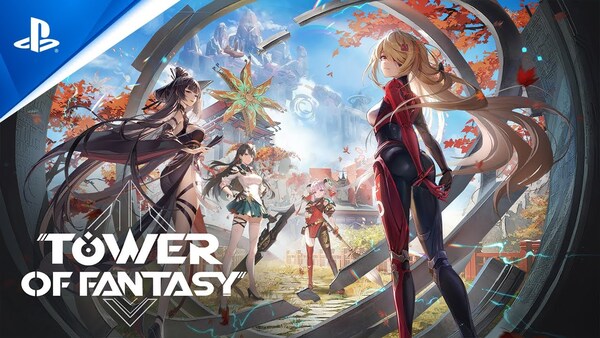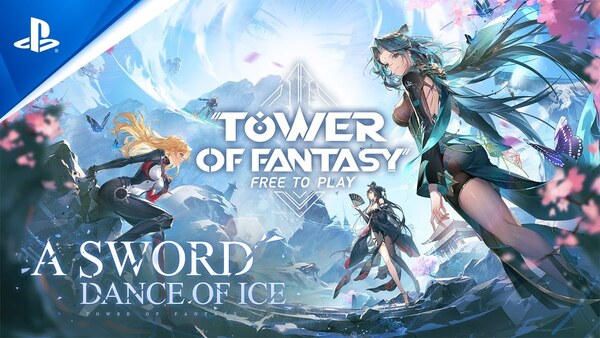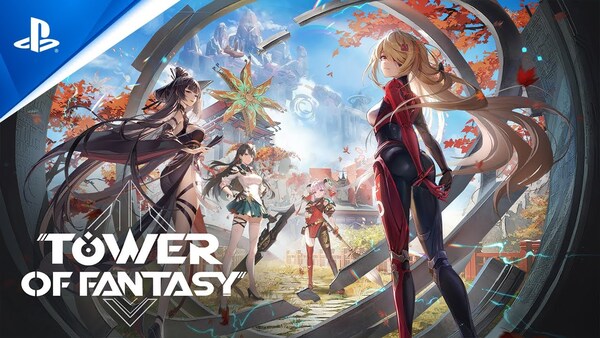Introduction
Tower of Fantasy is an expansive open-world RPG that combines exploration, combat, and gacha mechanics into a single, immersive experience. One of the aspects of the game that has garnered attention and criticism is the daily mission cap. This system restricts the number of missions players can complete each day, impacting their ability to progress and engage with the game’s content. This article explores the implications of the daily mission cap in Tower of Fantasy, examining how it affects player progression, engagement, and overall game experience.

1. Understanding the Daily Mission Cap in Tower of Fantasy
To fully grasp the impact of the daily mission cap, it’s essential to understand how it functions within the game.
Mechanics of the Mission Cap
In Tower of Fantasy, players are limited to a certain number of missions or activities that can be completed daily. This cap includes both main story missions and side quests. Once the limit is reached, players must wait until the next day to continue, or use in-game currency to bypass the restriction temporarily.
Purpose of the Cap
The daily mission cap is designed to manage the pace of player progression and ensure that players are engaged over the long term. By limiting the number of missions that can be completed each day, the game encourages daily log-ins and maintains a steady flow of content.
2. Impact on Player Progression
The daily mission cap has a direct influence on how players progress through Tower of Fantasy.
Slowed Progression
One of the primary effects of the daily mission cap is a slowed progression rate. Players who wish to advance quickly may find themselves frustrated by the limits on daily activities, which can delay the completion of storylines, character upgrades, and gear enhancement.
Time Management and Planning
To navigate the daily mission cap, players must carefully manage their time and plan their activities. This can involve prioritizing certain missions or strategizing how to use their limited attempts efficiently. For some players, this adds a layer of strategy, while for others, it may feel like an artificial barrier to progress.
3. Effects on Player Engagement
The daily mission cap influences how players interact with the game on a daily basis.
Encouraging Daily Log-Ins
One intended effect of the daily mission cap is to encourage players to log in daily. By providing a limited number of missions each day, the game creates a routine that keeps players engaged and coming back regularly. This approach helps maintain player interest over time and prevents burnout from excessive gameplay.
Potential for Frustration
However, the cap can also lead to frustration, especially for players who have limited playtime each day. Those who cannot log in daily may miss out on completing their missions, impacting their overall experience and progression. For players who prefer longer gaming sessions, the cap can feel restrictive and disrupt their immersion.
4. Balancing the Game Experience
The daily mission cap must strike a balance between providing content and managing player engagement.
Ensuring Content Longevity
From a game design perspective, the daily mission cap helps ensure that content remains relevant and engaging over time. By spacing out mission availability, the game can introduce new content and updates more gradually, keeping players interested in the long term.
Avoiding Pay-to-Advance Mechanics
One concern with the daily mission cap is its potential to encourage pay-to-advance mechanics. Players who wish to bypass the cap can use in-game currency or real money to purchase additional attempts or resources. This can create a disparity between paying and non-paying players, affecting the game’s balance.
5. Community Reactions and Feedback
The community’s response to the daily mission cap has been mixed, with varying opinions on its impact.
Positive Reactions
Some players appreciate the daily mission cap for its role in pacing the game. They argue that it helps prevent burnout by ensuring that players have a structured approach to gameplay. Additionally, it can create a sense of accomplishment as players complete their daily goals.
Criticism and Complaints
Conversely, many players criticize the daily mission cap for being restrictive and frustrating. Those who want to engage more deeply with the game may feel hindered by the limit, leading to dissatisfaction. Criticism often centers around the perception that the cap is an artificial barrier designed to drive in-game purchases.

6. Comparisons with Other Games
The daily mission cap in Tower of Fantasy can be compared to similar systems in other games to evaluate its effectiveness.
Genshin Impact’s Resin System
In Genshin Impact, the resin system serves a similar purpose, limiting the number of high-reward activities players can complete each day. Like the daily mission cap in Tower of Fantasy, it aims to manage progression and encourage daily play. However, Genshin Impact also offers more flexibility in exploration and resource gathering.
Other Games with Daily Limits
Other games, such as Fate/Grand Order and Arknights, use various forms of daily limits to regulate gameplay. These systems often focus on balancing content availability and player engagement, with differing impacts on progression and player satisfaction.
7. Strategies for Managing the Daily Mission Cap
Players can employ several strategies to make the most of the daily mission cap.
Prioritizing Key Missions
To maximize their progress, players should prioritize key missions that offer the most significant rewards or advance critical storylines. This approach ensures that they get the most out of their daily limit.
Efficient Time Management
Managing playtime efficiently can help players make the most of their daily missions. By planning their gaming sessions and focusing on high-priority tasks, players can ensure they complete their missions without feeling rushed.
8. Developer Responses and Adjustments
Developers of Tower of Fantasy have made adjustments based on player feedback regarding the daily mission cap.
Updates and Changes
The developers have occasionally adjusted the daily mission cap to address player concerns and improve the experience. These changes may include increasing the cap, adding additional mission types, or modifying the rewards system to better align with player feedback.
Future Prospects
Future updates may continue to refine the daily mission cap system based on ongoing player feedback. Developers are likely to monitor player reactions and make further adjustments to balance progression and engagement.
9. Long-Term Implications for Game Design
The daily mission cap has broader implications for game design and player retention.
Balancing Content and Engagement
The daily mission cap exemplifies the challenge of balancing content availability and player engagement. Game designers must carefully consider how to structure gameplay to keep players motivated while avoiding frustration.
Influencing Player Retention
How well the daily mission cap is implemented can significantly impact player retention. Effective balancing can lead to a more satisfying experience, while poorly managed limits may drive players away.
10. Looking Ahead: The Future of Daily Limits in Gaming
The concept of daily limits is evolving, and future games may adopt different approaches based on player feedback and industry trends.
Innovations in Daily Limits
Future innovations in daily limits may focus on providing more flexibility and reducing player frustration. Developers are likely to explore new ways to manage content availability while enhancing the overall player experience.


Impact on the Gaming Landscape
As the gaming industry continues to evolve, the approach to daily limits and mission caps will shape the future of game design. Understanding player needs and preferences will be crucial in creating engaging and balanced experiences.
Conclusion
The daily mission cap in Tower of Fantasy serves as a tool for managing player progression and engagement but has sparked debate over its impact on gameplay. While it helps pace the game and encourage regular play, it also imposes limits that can frustrate players seeking more freedom. As the game evolves, finding the right balance between content availability and player satisfaction will be key to maintaining a positive experience.


